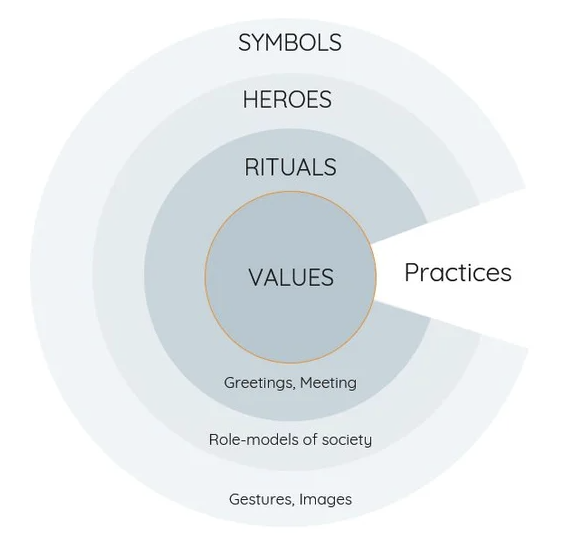After spending over a decade of my life in Finland/Europe and the U.S., and having had the great opportunity to interact and work with talented individuals and leaders from various cultural backgrounds and journeys, I wanted to synthesize and share some of my key experiences and lessons in cross-cultural experiences.
Working and living across countries/cultures may present great opportunities and at the same time, they hold numerous challenges. The ability to work effectively with, lead and manage across cultures are competencies that are becoming very important in a world that continues to get smaller and closer, due to rapid advances in technology and social media. As glamorous as it may seem from a distance, adapting to and succeeding in a very different culture are not at all easy. Those who choose to be ignorant of this topic will lose great opportunities for personal and professional growth.
There’re numerous studies and research articles on this topic and some of my thinking has been influenced by them.
If you come to another’s turf with empathy, sensitivity and open ears – what the Zen masters call ‘beginner’s mind’ – you’re halfway home.
– Tom Peters
1. Respect
Being aware, sensitive to and noticing some of the key themes, norms and behaviors in a new environment constitute an important starting point. This can help one to understand how things work, life patterns flow and what is valued in that setting. Many of the norms would be very different from one’s own conditioning and would seem strange initially. Being respectful to individuals and cultural norms helps to adapt faster to any new environment. One would also need to be respectful of the differences and try to understand the background without being judgmental. There is a possibility of feeling disrespected or ignored, in some instances. Chances are that, not everyone in a different culture is aware of the nuances of your culture and interaction styles. Irrespective of how you feel initially, your mature approach and respectful presence can increase your acceptance, credibility and prevent you from getting stuck in a frustration zone.
2. Openness To New Experiences Without Judging
This is vital for making progress in a different cultural setting. Stephen Covey’s teaching, “Seek first to understand, then to be understood” is a very useful advice to keep in mind while interacting with people from a different culture. It is useful to be aware of our own biases and that our biases and environmental conditioning may easily lead us into the questioning, judging, confusing and eventually distrusting zone. Individuals from different backgrounds can look at the same scenario and perceive it very differently. Categorizing something in your mind as superior or inferior, right or wrong, good or bad etc. will impact your own thinking ability and responses to situations and people. Open communication with authenticity is fundamental to avoiding misunderstandings. During initial stages of interactions, it’s useful to explain the reason behind doing or asking for something that impacts others, and clarifying the same with others without creating a ‘threat’ state, when there are questions in your mind. This avoids confusion, especially in the initial stages of relationship building.
3. Flexibility
As mentioned earlier, I realized that my own way of seeing a topic was very different from how others from a different background related to the same topic. Being flexible relates to building self-awareness and using that awareness effectively to understand and manage through various scenarios. This would also mean shifting/stretching ways of thinking and adjusting/ changing one’s own approaches. Taking the responsibility to tackle an unpleasant situation with maturity and emotional intelligence requires a lot of flexibility, to flex one’s own thinking frames. It’s very useful to have a positive ‘forgiving’ and ‘forgetful/let go’ attitude with unpleasant experiences, while being aware of one’s own learning. Very seldom does anyone win an argument of being right or wrong. ‘Co-regulation’ beyond ‘self-regulation’ is very helpful. Vicious responses only result in cycles of vicious interactions and stress, which take the relationships further into the red zone. On the other hand, not engaging in a proactive, positive conversation results in increasing distance.
4. Coping with the unknown and fear of failure
There’re a lot of unknowns in a new environment. Finding information through formal and informal channels and making personal connections are very helpful to put one at ease initially. One has to also find relevant ways to accept, understand and cope with stress related to uncertainties of the new environment. It generally will take a certain amount of time before adjusting and feeling comfortable in a different cultural environment. Patience is fundamental to work through times of frustration, disappointment and negativity. It may not be uncharacteristic to go through a feeling of ‘being lost’ at times. It is really important to find one’s own support from ‘comfort zones’, secure bases and ‘connections’ in those situations.
It is helpful to be prepared for mistakes and misunderstandings along the way. Fear of failure can inhibit people from experimenting or experiencing new things, which reduce the impact of the cultural experience, knowledge and personal development. The normal tendency might be to stay within one’s own comfort zones most of the time.
According to a leading expert in this field Fons Trompenaars,
“We need a certain amount of humility and a sense of humor to discover cultures other than our own; a readiness to enter a room in the dark and stumble over unfamiliar furniture until the pain in our shins reminds us of where things are.”
Your willingness and openness to step into the new world can take you to a totally new dimension of personal growth, deep connections and confidence. Enjoy the journey. Best wishes…
Please share your valuable learning and experiences!
Note: The topic of ‘culture’ can be reviewed at different levels or frames. I’ve tried to focus on the country culture aspect here. Some of these practices can be useful in working through other aspects, like organizational culture differences.








Recent Comments